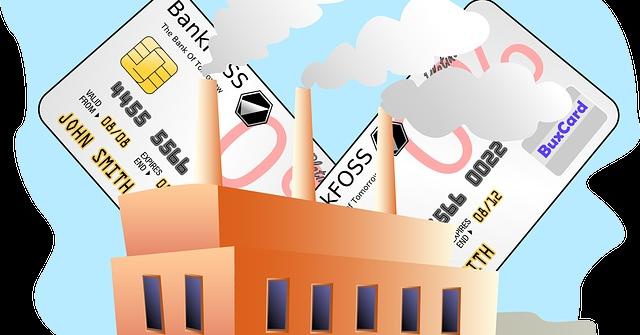Your credit score has a direct bearing on your ability to purchase a car or home, but it can also impact your hiring ability in certain job markets. While many of us experience temporary financial issues at some point in our lives, letting it hurt your credit could haunt you for years to come.
For young adults, the allure of credit cards, pay-as-you-go financing for new furniture and other home necessities, and new cars can be too tempting to resist. Unfortunately, many just don’t stop to consider whether they can afford it or even if it’s actually worth spending money on.
No matter if you’re looking to buy a home or new car in the near future or you’re still living with your parents, building your credit at this point in your life is extremely important. With the right tips and a little dedication, you can work your way up in the world of credit. Here are the main things to keep in mind when looking to build your credit:
Use Autopay
When trying to improve where you rank in the credit score ranges, avoiding late payments is of utmost importance. Ensuring timely and complete payment is a paramount step in credit building. Rather than risking forgetfulness or delays, it’s highly recommended to leverage automatic payment options to streamline the process.
Build a Good History
While credit cards are a good way to build your credit score, ensure the interest rates are reasonable. For example, retail stores may offer a credit card, but these often come with unusually high interest rates. Nowadays, it’s not unusual to find auto loans with 0% or 2% interest rates, which present an excellent opportunity for building credit histories. However, the key is to keep your debt proportionate to your income. Remember, building a credit history doesn’t equate to accumulating excessive debt.
Use a Low-Limit Credit Card
Utilizing a credit card with a low limit for minor expenses and ensuring full payment on a monthly basis is an effective strategy to augment your credit squickly You can find numerous offers for these cards online, many of which have around a $300 limit. Aim to charge $50-$100 per month on things like digital gift cards, always avoiding reaching the limit. Subsequently, settle the balance in its entirety. This practice will lead to a noticeable improvement in your credit score in just a few months.
Improve Your Financial Behavior
Understanding the operations of credit bureaus is pivotal in constructing a robust credit history, with credit card debt playing a significant role in shaping your credit score. Your debt ratio should be under 30%, so do your best to pay off any balances and bills you may have. Additionally, embrace and apply sound financial practices, including strategies to boost your savings. These beneficial habits will inevitably be reflected in your credit history.
Get Help From Family or Friends
By acquiring authorized user status on their credit card, you can begin the construction of your credit through their payments. Naturally, it’s pertinent to ensure the individual in question maintains an appropriate balance, fulfills payments promptly, and employs a card issuer who reports authorized users to all the credit bureaus. Be mindful, in an era of proliferating online scams, to only engage in such arrangements with someone you trust implicitly.
Go Slow
Finally, cultivating a robust credit standing necessitates a slow and methodical approach. Develop a detailed budget that encompasses all your expenditures, making sure to include any large purchases you anticipate in the future. This ensures you can comfortably accommodate the repayment within your financial constraints. It’s of paramount importance not to overspend beyond your income. In terms of revolving credit, it’s advisable to settle the entire balance at the culmination of each billing cycle, avoiding the rollover of balances into subsequent cycles and thus preventing the accrual of interest.
In a nutshell, building a healthy credit score as a young adult is not about accumulating debt but about demonstrating financial responsibility. By incorporating these tips into your financial routine, you’ll be well on your way to establishing a strong credit history that will serve as a strong foundation for your future financial endeavors.
